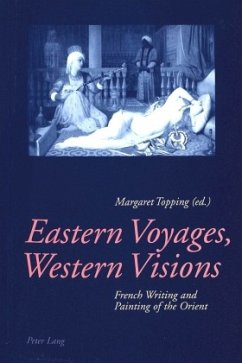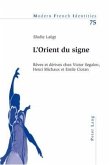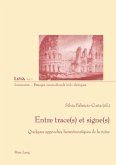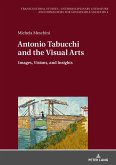Strange and exotic, seductive and threatening, the Orient has always been an enchanted space for the West. But this is a space, theorists argue, that has been 'Orientalized' by the West, constructed upon a system of knowledge and power which defines the West as much as this 'Other'. Within Western cultures, the French encounter with the Orient has been extraordinarily rich and varied, from the experiences of the first pilgrims to the challenges posed for the identity of modern-day France by its ethnic minorities. This collection of interdisciplinary essays explores the range of French and francophone encounters with the East from the medieval period to the present day. The contributions encompass a variety of Orients, both geographical and generic: the Orients of the visual arts, of historicist discourse, of fiction and travel writing. They consider not only those artists we immediately associate with the East, such as Nerval or Fromentin, but also those, like Proust, whose work appears firmly rooted in the West. They also provide new insights into the less familiar works of long-celebrated authors like Flaubert and more recently acclaimed writers such as Bouvier and Djebar.
«Es ist in 'Eastern Voyages, Western Visions' gelungen, den Orientalismus in einer großen Bandbreite mit seinen diversen Facetten zu behandeln, sowohl durch den zeitlich weit gefaßten Rahmen, durch die Mischung von Schriftstellern, Poeten, Historikern und Künstlern, Orientreisenden und Atelier- bzw. Schreibtisch-Orientalisten, wie auch durch die z.T. sehr unterschiedlichen Ansätze der Autoren. [...] Die Aufsätze sind somit vor allem neues Material in sehr lesenswerter Form mit einem Akzent auf dem Wandel in der Annäherung von westlichem 'self' und östlichem 'other' bis die Grenzen zwischen beiden allmählich verschwimmen.» (Karin Rhein, Francia)







